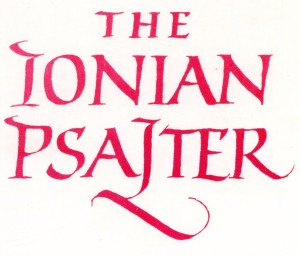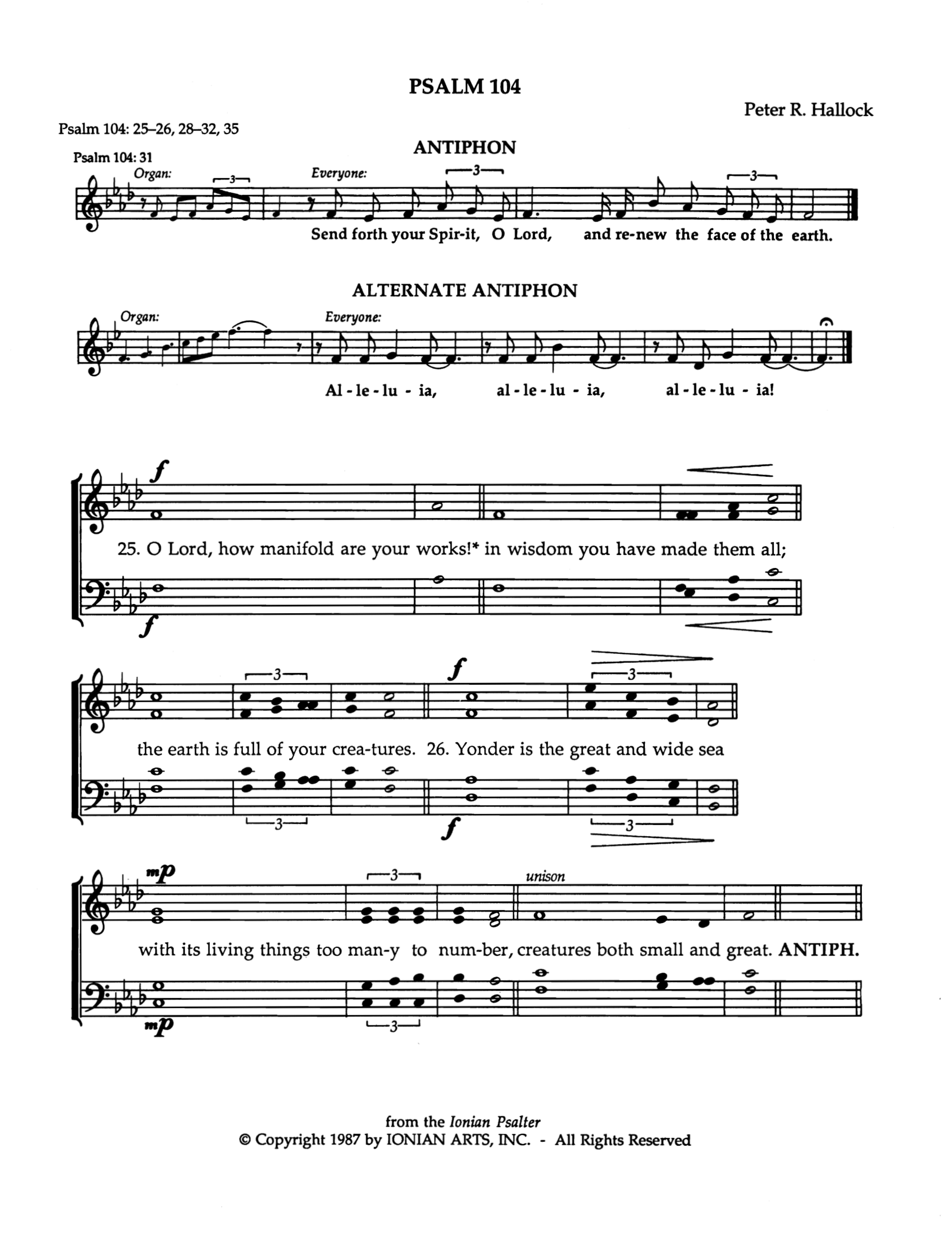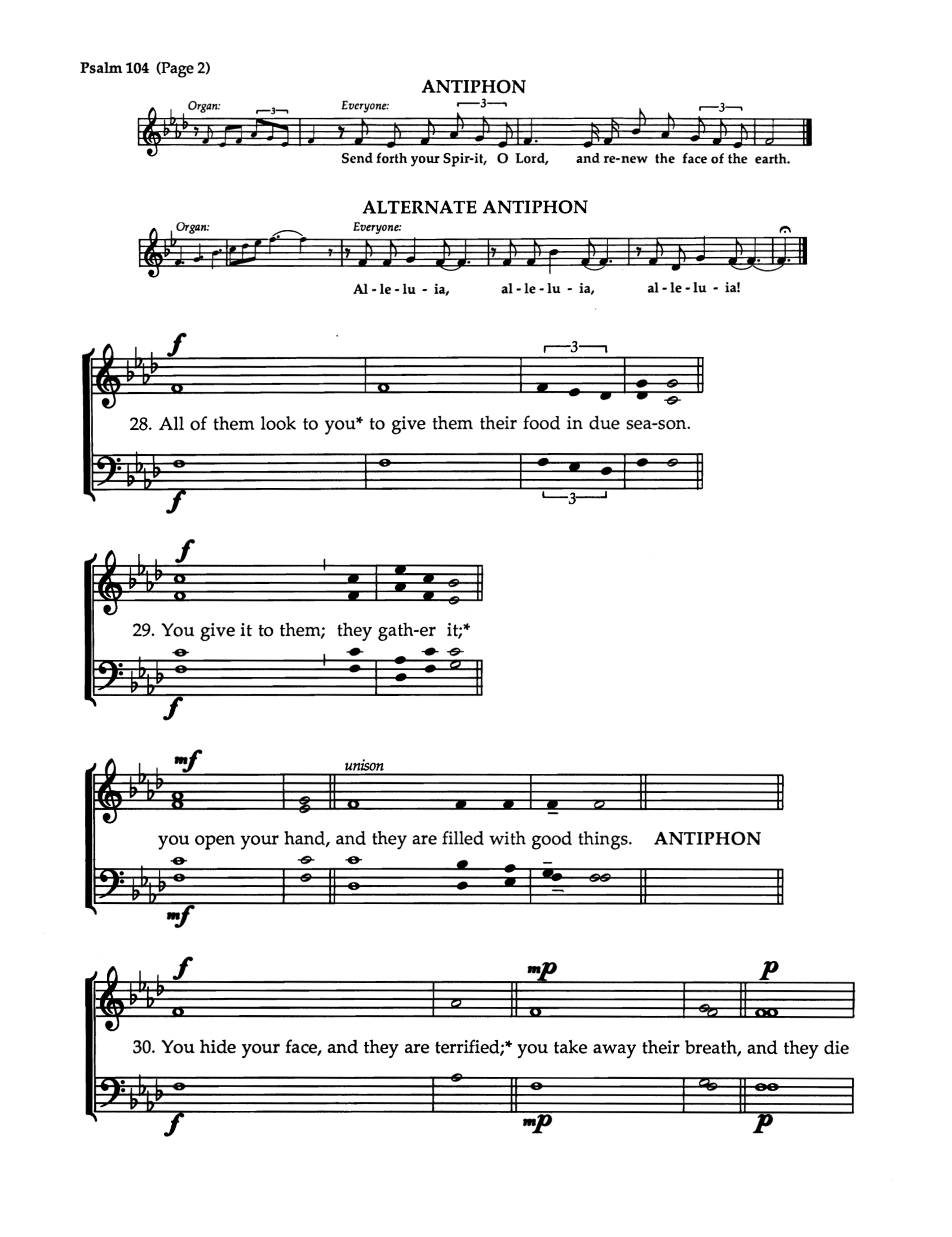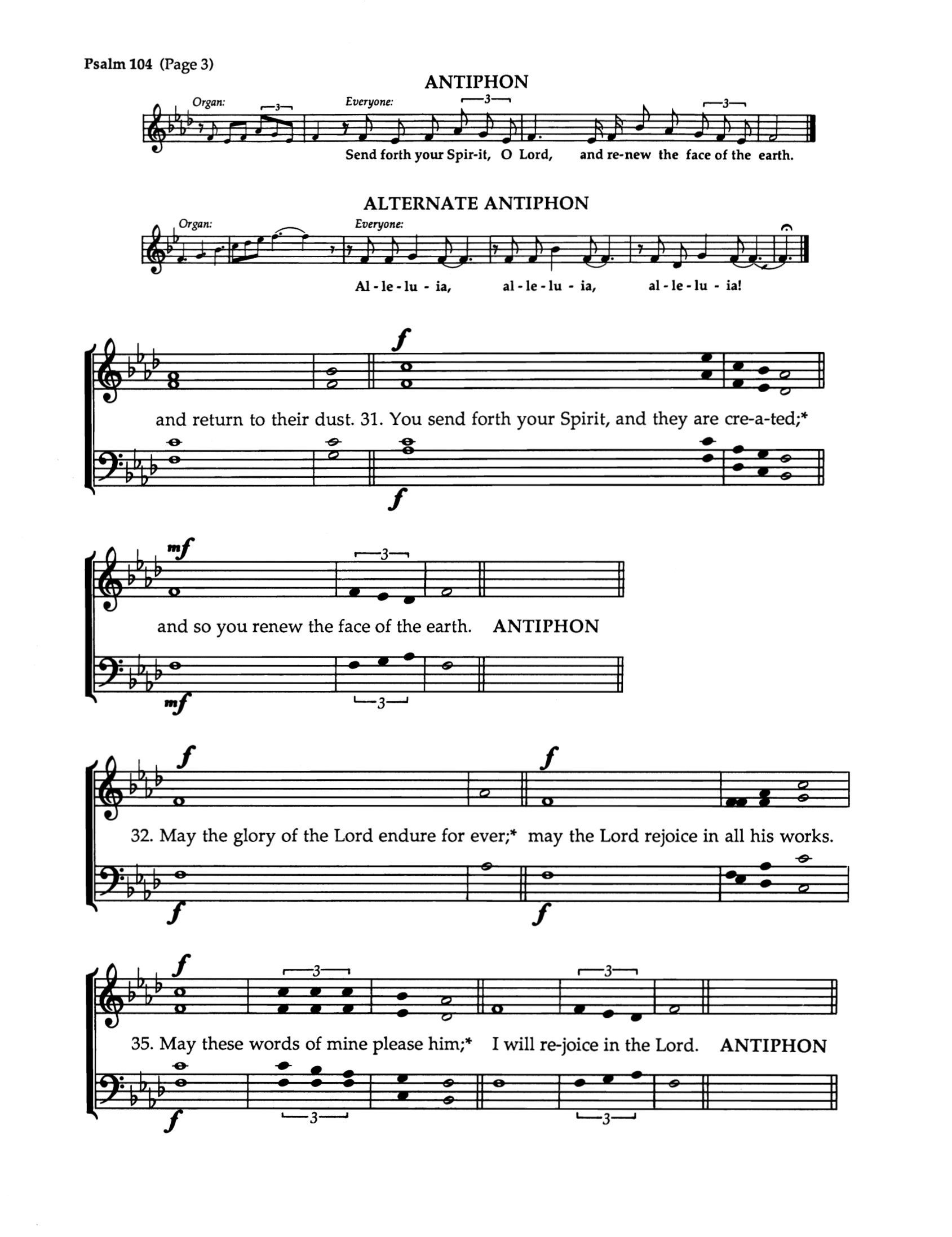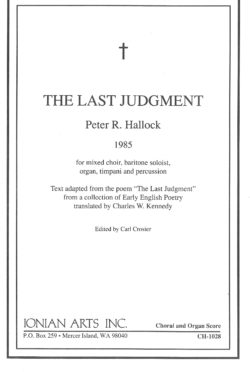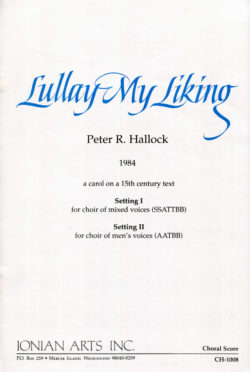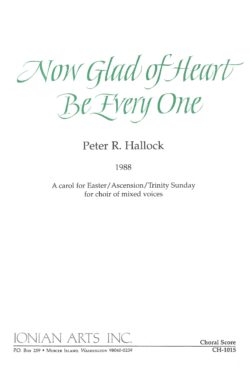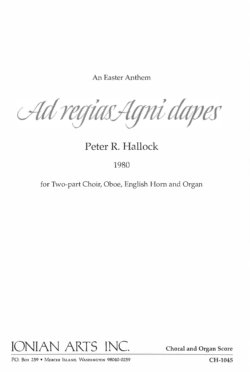Description
Music for the assembly consists of antiphons set in “song” style with a regular occurring pulse. This has been done in full support of Joseph Gelineau’s contention that, in order to “stay together,” large groups of people require music with an obvious, regular pulse. It is with this intent that the majority of antiphons are based on similar harmonic progressions and melodic patterns in order to make them more immediately accessible. Their importance as “gathering music,” binding together the entire assembly of worshippers, cannot be stressed enough. The obvious simplicity of the antiphons should in no way suggest that their importance may be discounted; on the contrary, they are the golden binding thread. Each antiphon consists of an “organ intonation” which introduces the melodic and rhythmic material of the refrain.
Music for choirs consists of the verses of the Psalms arranged in a modified form of Anglican chant. Hopefully singers will find the music both challenging and rewarding so that the singing of the Psalms may become a high point in worship instead of an arid and sometimes tedious chore. The unison setting of some verses has been chosen for the sake of expressive strength as well as a means of providing a variety of choral sounds. While not recommended as a common practice, a quiet continuo-style organ accompaniment is possible, using the key signatures and choirs as a guide. Where singing in tune is a problem, or a serious imbalance of the sections must be accommodated, a judicious use of accompaniment may be helpful. In addition, one may find it desirable to transpose the music up or down a half step. In that case the organist must be prepared to play the antiphon in the transposed key.
Accompaniments consist of solo melodic material for the right hand, accompanied by a two-voice harmonic texture to be played in the left hand, and a simple independent pedal part (usually only consisting of two or three pitches.) On a two-manual organ, the accompaniments are to be played with a leading registration for the right hand, and a lighter but supportive registration for the left hand. The pedal should be coupled to the left hand registration.

